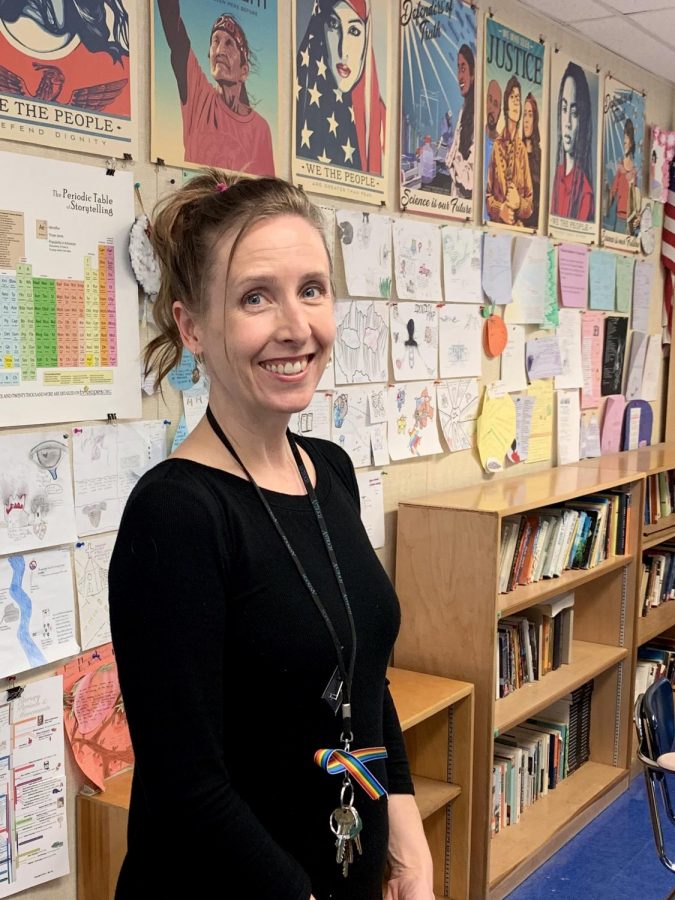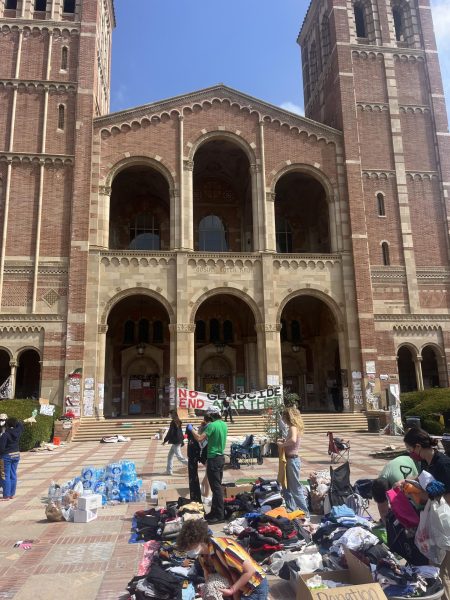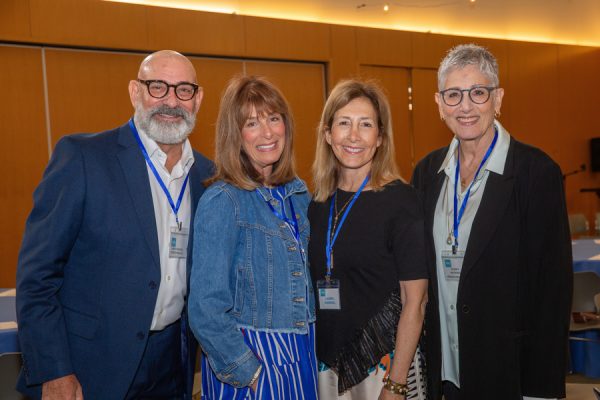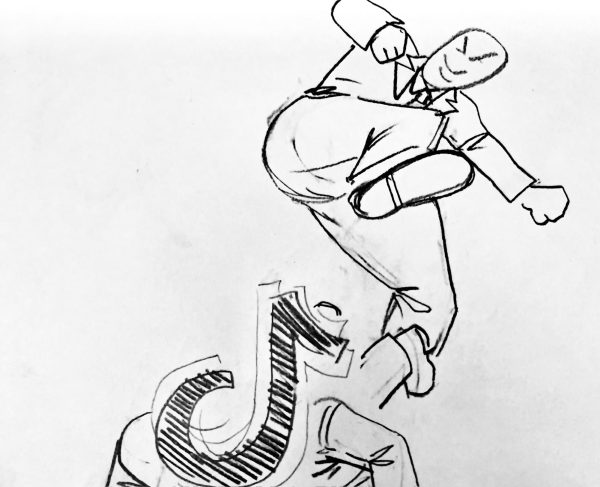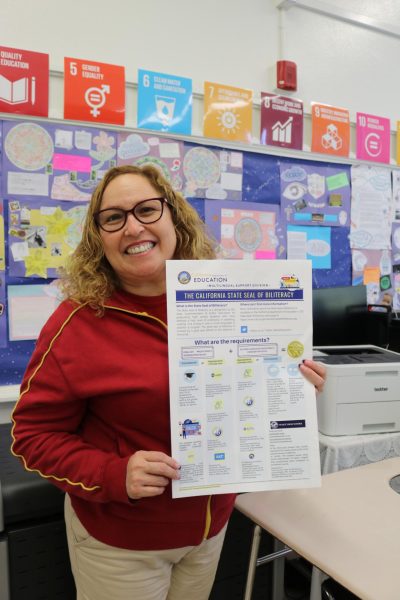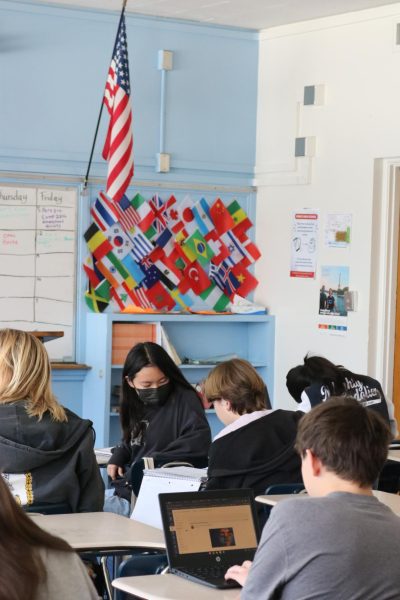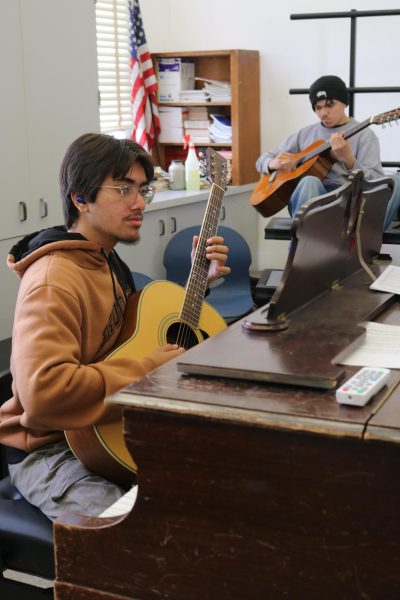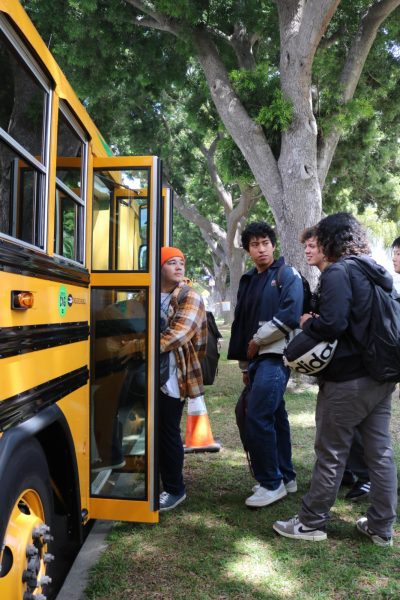English Teacher Hazel Witham is a California Teacher of the Year Finalist
Hazel Kight Witham in her classroom
November 6, 2020
English teacher Hazel Kight Witham was named one of six California Teachers of the Year Finalists for the 2020-2021 school year in late last month. State Superintendent Tony Thurmond awarded Witham this title.
Witham is also one of ten Los Angeles County Teachers of the Year for the 2020-2021 school year that is awarded to “educators who have shown exemplary dedication, compelling classroom practices, positive accomplishments and professional commitment,” according to the Los Angeles County Office of Education.
In addition to being recognized both state and countywide, Witham was selected as one of 22 Los Angeles Unified School District Teachers of the Year, among the district’s 30,000-plus teachers.
Witham is a product of LAUSD and the Westside. She graduated from Westchester High School and continued her education at Brown University, where she earned a bachelor’s degree in English and American Literature.
“I had no idea what I did want to do,” she said. “When I went to college, I just started taking classes that I was interested in and was excited by a lot of art and lots of English literature.”
After college, she began working at UCLA in the Home Health department. She realized that her idea of the working world was heavily influenced by her mothers, both teachers. But more importantly, she craved the feeling of directly making a difference in other people’s lives — thus began her journey to becoming a teacher for the same school district that educated her.
She earned her teachers credential with the LAUSD Intern Program and began working at Daniel Webster Middle School in Mar Vista, where she would stay for the next 12 years before becoming a part of the Venice High teaching community in 2013.
She began her Venice career during the first year of the Science, Technology, Engineering, and Mathematics magnet program, where she has established herself teaching tenth grade English and AP Literature and Composition.
Witham wants her classroom to be a place of empowerment and understanding in order for her students to “develop skills around authentic and compassionate listening.”
“I want students to have a sense of how we create a supportive, loving, nurturing community together,” she said.
She stresses social-emotional wellness and begins her classes with mindful breathing as a way for students to become grounded and present in her class, helping them become stronger listeners and writers.
Witham understands the complexities of the student-adolescent experience and strives to have her classroom be a place where students can not only process their own experiences but also learn from others.
“I really like to help them find their voice and tap into their own unique important experience,” she said. “I also really work on building a more just equitable world where we really care about each individual.”
Witham constantly works towards establishing her classroom as a restorative and liberating space, one which is mindful of her own privileges as a white educator teaching in a school where the majority of students are of color.
“I really did my own work to understand where I was positioned in this system — what my privileges are and how I can use my privilege to empower others,” she said. “My students are my biggest teachers in all of that because by listening to them, asking for their stories, and empowering them to share their voice, I am learning.”
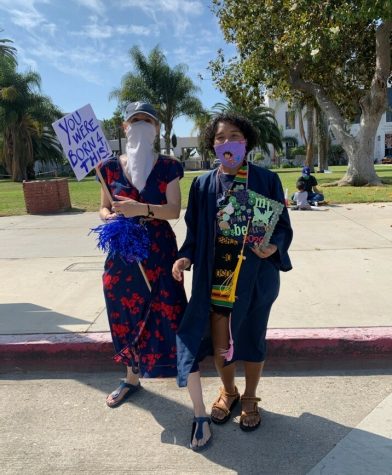 She uses a unique curriculum that encourages creativity and voices of color. Every November her classes participate in National Novel Writing Month and during Black History Month her classes take a deep dive into literary works written by black authors, although she always prioritizes works written by people of color year-round.
She uses a unique curriculum that encourages creativity and voices of color. Every November her classes participate in National Novel Writing Month and during Black History Month her classes take a deep dive into literary works written by black authors, although she always prioritizes works written by people of color year-round.
“I’m still going to be the white teacher at the front of the room,” she said. “But the readings that I offer, those can be voices of color. I can really challenge the white canon and try to make sure we are hearing from other perspectives, because that is essential.
“I think it’s vital that other teachers do that work, too,” she added. “From a space of curiosity, and asking, ‘How do we become more supportive of all of our students, but particularly our most marginalized students?’”
Her work to empower student voices doesn’t stop in the traditional classroom. She is the sponsor of the Venice Poetry Club and Lunchgrove (a club where students have a safe space to discuss different topics) on campus. While the programs are different in their missions, at the core of each one is empowering student voices.
Witham is a writer at heart. She earned her Master of Fine Arts in creative writing from Antioch University. Her work has been published in numerous literary magazines.
“Teachers of writing should write,” she said. “In order to support students, you actually have to do the practice.”
Although she expresses immense gratitude for the Los Angeles County Teacher of the Year title, she says the true credit for her teaching success goes to the school communities that have shaped her.
“I am the teacher I am because of all the other teachers and administrators who have supported me and mentored me,” Witham said. “I cannot see myself as better than anyone else. I know how hard this job is and in some ways it all feels absurd to single out a few folks when this is such a collective profession.”
Witham recalls Lynette Mains, an administrator at Daniel Webster Middle school when she was still in her earlier years of teaching.
“She could silence an auditorium of middle schoolers just by raising her hand and saying kindly and calmly ‘I’ll wait,’” Witham recalled. “They really loved her, and they knew she loved them, and they would listen. She modeled how you can be there with so much love for everyone.”
Witham offers these words of wisdom for students making their way through distance learning.
“So many of my students are so hard on themselves right now. It’s okay,” she said. “Take a deep breath. … You’re surviving a pandemic. Be gentle on yourself. You’re doing what you can do, and that is enough.

